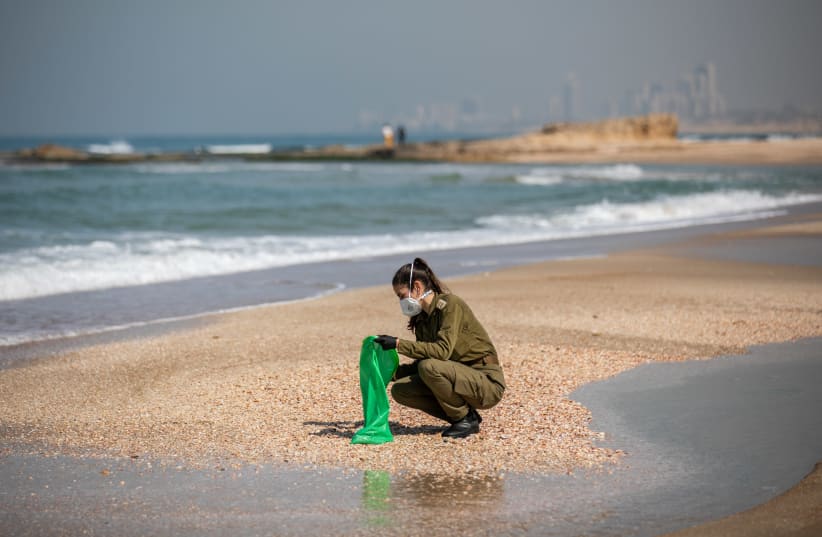The tar spill has been downgraded from a tier-2 environmental issue. While the situation is still not completely cleared – at stage "blue" – the ministry is already thanking its clean-up teams, soldiers and volunteers who were involved in the exhaustive cleaning project.
"After an intensive month, we're moving to the next stage, and are continuing to coordinate with the coastal authorities in operations to clean and remove the tar, in order to bring about a complete cleaning of the beaches," Environmental Protection Minister Gila Gamliel said in a statement."We thank the ministry's workers, local authorities, volunteers and environmental organizations with EcoOcean leading them; with their help the incident was treated quickly and professionally. We will continue actions toward the International Monetary Fund to seek for compensation for the terrible damage done to Israel's beaches."
According to the Environmental Protection Ministry's press release, 82% out of central Israel's 101 beaches passed the tar index, and have returned to public use. More broadly, 61% of all beaches are clean or with a low amount of pollution. Currently, 36% remain with a low to moderate level of tar, and just 3% of beaches are still significantly polluted.
Operation of the beaches will be reverting to the coastal authorities starting Wednesday.
The unprecedented ecological disaster began mid-February. Hundreds of tons of tar washed ashore, covering 160 km. out of the 190 km. of Israel’s Mediterranean coastline.
The response to the disaster resulted in a wide coalition of responders, with thousands of volunteers, soldiers, and even senior European diplomats stepping up to clean away the tar.
Gamliel has decried the tar storm as a result of "eco-terrorism." Lloyd’s List, a leading international shipping journal, used intelligence vessel-tracking data to confirm that an Iranian tanker called Emerald was responsible for the deliberate spill.
Tobias Siegal contributed to this report.
